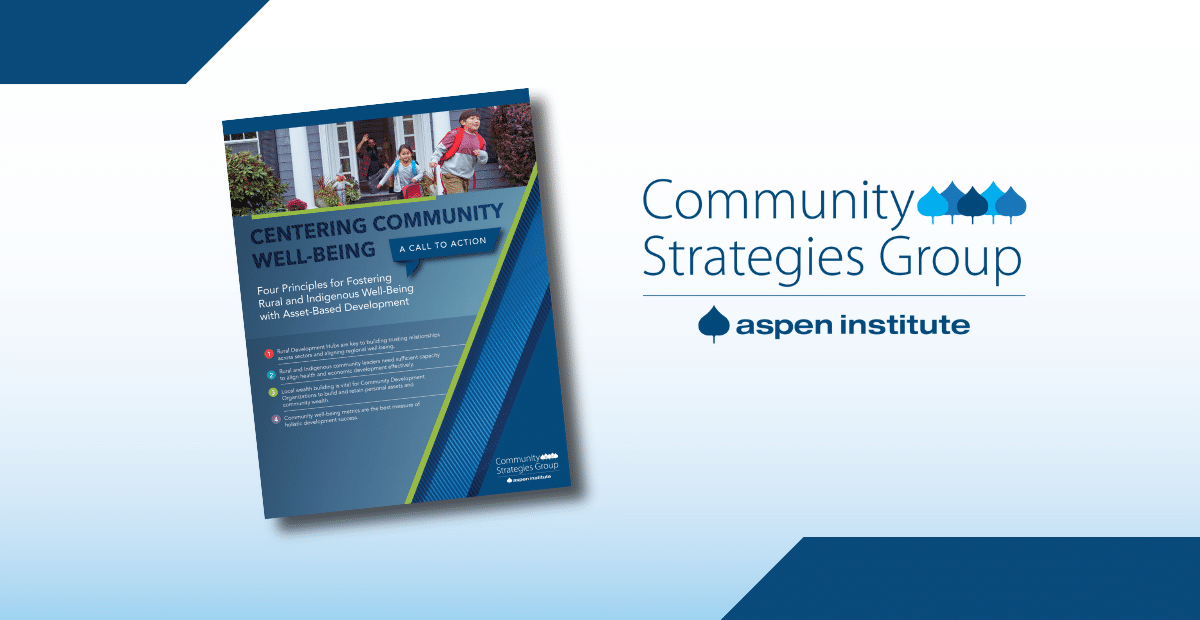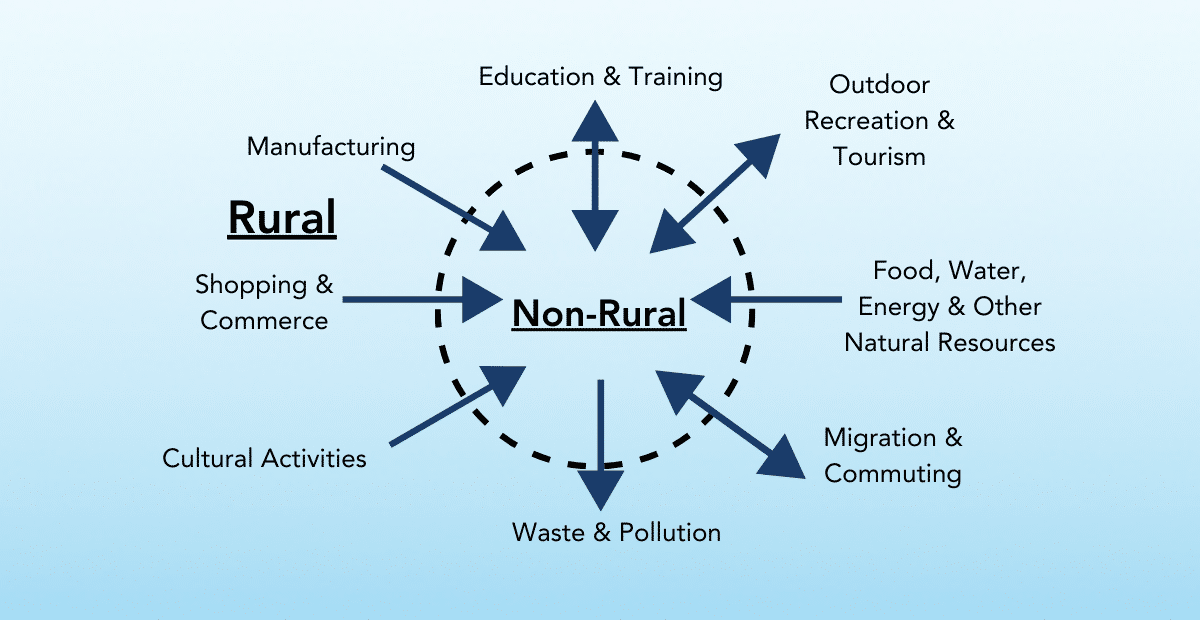Examples of Rural Area Resources Supporting Community & Economic Prosperity
Access to helpful and timely resources is vital for fostering economic growth and well-being in rural communities. While rural places and Native nations face unique challenges due to systemic barriers based on place, race, and class, Aspen CSG is dedicated to providing information on the types of rural resources available to strengthen and support economic and social growth in rural communities to promote long-term prosperity.
These resources include:
- Funding strategies and financial support
- Health and wellness initiatives
- Organizational collaborations and partnerships for economic development
- Wealth-building strategies and programs
Funding for Rural Communities
One of the most critical rural issues is sporadic and top-down funding strategies from national funders. Many rural organizations face barriers when seeking financial support. However, there is a growing movement to rethink current funding mechanisms to meet rural needs more equitably. Aspen CSG’s Funding Rural Futures: A Call to Action emphasizes the importance of equitable and flexible grantmaking to support the well-being of rural communities. You can read more about equitable funding approaches in the full report here.
Health and Wellness Initiatives
Examples of rural resources extend beyond financial support to include health and wellness initiatives. Aspen CSG’s Collaborative Strategies for Rural Health and Economic Prosperity highlights how investing in health is a key factor in fostering community prosperity. Read more on this topic here.
Collaborating for Economic Development
Aspen CSG’s rural area resources also include collaborations that spur economic development. Through partnerships with organizations like the Housing Assistance Council, the International Economic Development Council, the Rural Community Assistance Partnership (RCAP), the Federal Reserve Board, and Rural LISC, Aspen CSG works to change the narrative on economic and community development in rural communities. Aspen CSG focuses on what it will take to move prominent development thinking and doing from extractive strategies to equitable and sustainable models to grow and retain local wealth. Find out more about this in Aspen CSG’s blog post here.
Local WEalth Creation
WealthWorks is an approach to doing economic development differently that inspired and continues to inform Aspen CSG’s Thrive Rural Framework, particularly the Local Theory of Change, and is a recommended starting point of engagement for communities utilizing the Thrive Rural Framework. WealthWorks is a community-centered, network-oriented approach to community and economic development. The WealthWorks’ wealth-building approach allows communities to focus on what they have — instead of what they lack — to generate new and sustainable economic opportunities rooted in local people, places, and businesses. WealthWorks is not theoretical; it was co-created by a group of practitioners doing the work in their communities and regions. Learn more about local wealth-building here.
Conclusion
By leveraging funding opportunities, developing cross-sector collaborations, and thinking about rural development differently, rural and Indigenous communities can drive prosperity. Aspen CSG continues to work alongside rural organizations to ensure communities have the tools they need to thrive. For more examples of rural resources, be sure to explore the full range of blog posts and reports available on the Aspen CSG website here.







